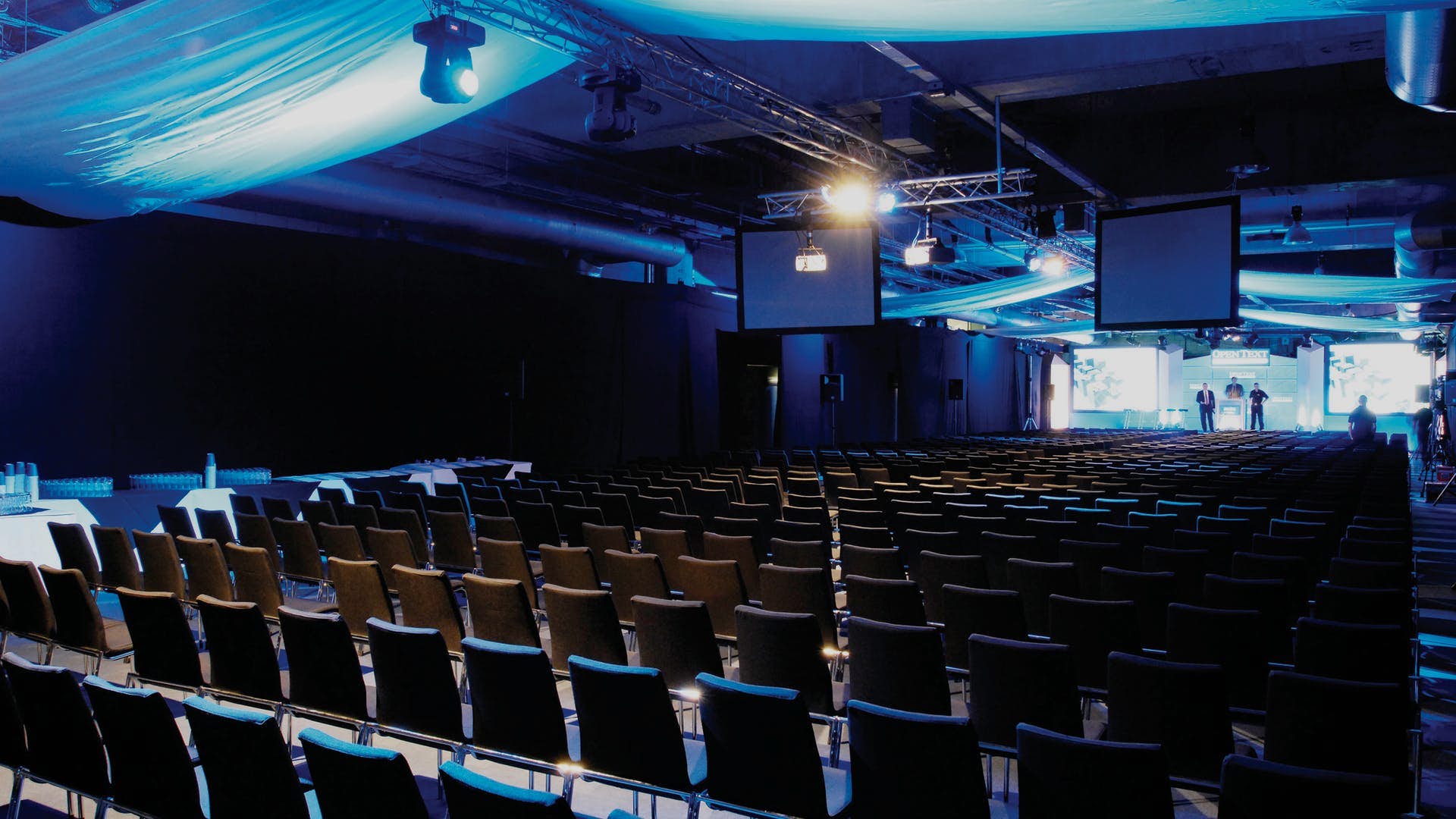On Thursday 27th May 2021, the Hire Space Virtual Team delivered Part 2 of Adapt with Arena. The morning involved two panel discussions; the first discussing the key skills event planners will need going forward, and the second on how planners can prepare for the return to live events, held in association with the Event Marketing Association (EMA).
For the first panel we were joined by Juliet Tripp, Deputy Head of Global Events at Chemical Watch, Kate McLachlan, Events Manager at Kennedys, Hannah Hamilton, Events Manager at BVCA, Carla Hallmark Jones, Head of Events at Nesta and Sarah Donnelly, Marketing & Comms Director at Blick Rothenberg. The second panel comprised of Richard Waddington, Chair of the EMA, Clare Melton, Global Head of Events at IHS Markit and Jodi Egan, Senior Manager, Global Events at IFS.
Watch the full video and read the key takeaways for both sessions below. Make sure to register for Part 3 taking place on Thursday 24th June!
Table of Contents
Topic: Essential Skills For Event Planners Navigating The New Events World
1. Video
2. Key Takeaways
3. Q&A
4. The Speakers
Topic: How Corporate Event Planners Are Planning Their Return to Live
1. Video
2. Key Takeaways
3. Q&A
4. The Speakers
Topic: Essential Skills For Event Planners Navigating The New Events World
Key Takeaways
Being able to upsell
The events landscape has changed so much that event planners found themselves needing to sell products or concepts (such as virtual events) that perhaps their customers/clients, as well as the planners themselves, were not hugely familiar with at the time. Adapting to this and getting buy-in from stakeholders has been a challenge throughout the pandemic, so it's about honing that key skill of being able to pitch an idea and learning as you go.
Coping with the pressure
All of us, not just events professionals, were put under a huge amount of pressure to be self-improving during the 'downtime' we had throughout lockdown. With flurries of social media posts about friends and colleagues learning new skills, becoming master bakers and taking educational courses, it could be overwhelming at times.
It became difficult for some planners to keep up with this pressure, especially when it came to virtual events, an entirely new domain for many. The answer to overcome this was simply trial and error; reaching out to peers, discussing what was working, what wasn't working, sharing knowledge and guidance, and trying to learn the most relevant information needed at that time, rather than trying to do too much.
"The pandemic has shown what an incredible industry we are; seeing competitors who are now friends, lifting each other up. Just another reason why we are the best industry in the world!" Juliet Tripp, Deputy Head of Global Events at Chemical Watch
Staying flexible with job roles
As well as individuals looking to upskill, companies as a whole also found themselves taking a hard look at their employees' job specs and the skills that a) the team needed and b) the new skills employees were actually already bringing to the role. Employers could then support this shift by investing in training, such as video editing, basic graphic design or asset creation. Adopting this approach is mutually beneficial; the company becomes better equipped to cope with new demands and the employees get the opportunity to improve their skillset in specific areas and feel empowered in their new skills.
Top tips for aspiring corporate event planners
- Get stuck in! Experience is key when it comes to running virtual events, and you'll only learn from trying and making mistakes, so get stuck in and give it a go. You'll be surprised at what you can achieve!
- Show initiative. Showing you're keen and are willing to talk to people and gain experience in different areas is a key factor for budding event planners to keep in mind.
- Keep on top of where the industry is headed. Hybrid events will likely be a huge part of the 'new normal', so understanding how to plan and successfully deliver these events will be hugely beneficial going forward.
- Find a mentor. Go on Linkedin, find organisations that you like the look of or individuals who know what they're doing, then contact them! You've got nothing to lose by asking someone to go for a coffee, and even if they can't help you personally, likelihood is they will try and put you in touch with others who can.
Q&A
How can we make sure our organisations see events as a fundamental part of the marketing mix going forward?
With any marketing and comms, it's critical to nail down exactly what you want your audience to feel, understand or do. If an event is going to help you achieve these objectives or is important to a particular initiative or campaign, then it's an important part of your marketing mix and should be taken seriously. So, be clear in your objectives, have faith in why you need to hold an event and this should sell it for you. Sharing success stories can also help; teams that weren’t keen on putting on events during lockdown changed their opinion once they'd seen how successful the events had been.
What kind of new skills do you seek on your hires that you were not looking for before?
Flexibility and a solution-focused mindset is absolutely crucial, now more than ever. You can teach anyone anything, but if they have a flexible mindset and the right personality to solve problems, that's what will stand a candidate apart from the rest.
Having said that, having a mix of experience with in-person and virtual events is also fairly important now. If someone has only done one or the other then there’s definitely a gap in their experience that may raise concern (depending on when they came in to the industry).
Do you see certain event types benefitting more from going virtual or hybrid?
We’ve found that educational (e.g. webinars) sessions have worked really well virtually – but there is still an appetite for in-person social events. I think there will need to be a really strong reason for people to go to in-person events – I can’t see us having attendees turn up to one that is for an hour or less. I’d imagine that we’ll arrange the slightly longer sessions as in-person or hybrid.
If not doing formal training how are you gathering and building your knowledge and skills?
At the start of lockdown we did a lot of Google searches for videos, blogs or articles about the different areas we were looking in to. You can watch a 10 minute video and gain more on that, rather than waiting for a formal training. Also being part of industry groups where you can ask for ideas or opinions have been really helpful.
How are you choosing your event platforms?
We wrote down a list of the key criteria that the platform had to meet (e.g. registration with set data fields for our international CPD requirements), and then went through the different options. We looked up companies that we’d heard of but also asked for any that others had been using to attend online sessions to see if they could work with us.
The Speakers

Topic: How Corporate Event Planners Are Planning Their Return to Live
Key Takeaways
Re-interpreting content
When the pandemic first hit, planners had to make decisions on how they would present the content they already had planned, if at all. Some companies switched their in-person events to virtual events, some changed the structure by developing smaller webinar-style events covering the same content, and some cancelled their events altogether. We now find ourselves in a similar situation, in that planners now need to decide how they're going to make their events work in-person again and think creatively to make them a success.
What does the future hold?
Planners have become very comfortable with virtual, so they will now need to adapt to using a hybrid events model to incorporate their newfound virtual skills with their skills of planning a traditional in-person event. This can be harder than it sounds, so there will be a huge amount of trial and error involved, as well as leaning on production suppliers for guidance on best practice.
There will also be huge importance placed on being crystal clear on a company's objectives, which could dictate whether an event is fully live, hybrid, virtual, or even whether it needs to take place at all. It's important to take each event on a case-by-case basis and develop a much more strategic approach to the portfolio management of events.
Should everyone have the same opportunities?
Planners should try and replicate the same experience for both virtual and in-person attendees going forward, because it's important that everyone should have the same opportunities to experience their content. Having said that, it's one thing for a virtual attendee to watch the main plenary session via a livestream, but it's a whole different ballgame when it comes to replicating the networking or breakout aspect of a live event virtually, so it's about being creative and offering the same content in different ways. For example, breakout sessions could be separated for virtual and physical attendees, so that everyone's voice is heard and all attendees remain engaged.
Working with suppliers in the new normal
Suppliers across all aspects of events, from production and AV companies to venues, have become much better versed in hybrid event production throughout the pandemic. In doing so, they have positioned themselves as experts on a new way of delivering events, which event planners will certainly need to lean on.
Planners will need to trust their suppliers more than they needed to previously, and there will need to be much more of a partnership in all aspects of planning an event. One such example is cyber security. This has never really been an issue before, but now requires expert advice and guidance to ensure the event and all attendee data is secure.
Q&A
What kind of cyber security do you seek on your virtual platforms?
Most important here is to ensure you have adequate DDOC (Distributed Denial of Service) protection, which can be bought via services such as AWS. DDOS is the most common type of attack – where hackers flood the event with requests to connect and effectively overwhelm the platform so it crashes.
We engaged a cyber security team to work with us on our biggest event this year, but also had them conduct an audit of the systems and platforms we use to make sure we have all boxes ticked. In theory, this should be a standard part of onboarding any new platform provider.
What do you think are the main goals of virtual attendees compared to in person ones? Do you think they have different reasons to attend events?
Very different – we’re almost placing our audiences into three broad “buckets”; those who attend in person, and are happy to; those who attend virtually because they want to (for a number of reasons); and those who will attend virtually because they have to – either as a result of local Covid-related restrictions, company budgets/travel restrictions etc. Those who are virtual by necessity may want to be there in person but can’t, and so their motivations will be very different to those who are happy to attend virtually.
When it comes to networking, virtual attendees will need a very easy and clear mechanism to find the right person to connect with, whereas in-person attendees can enjoy wandering the exhibition floor meeting new people and getting hands-on access to the technology. Ensuring the in-person attendee gets value for money from the cost of their attendance by increasing the networking opportunities, access to your Executive Leadership Team/Product Experts and additional sessions will help to avoid the virtual option cannibalising your onsite attendance.
How are event planners going to make budgets work for full hybrid events?
Event planners are going to have to be more creative; hybrid isn’t cheaper and in most cases will be more expensive than pure virtual or pure live. Think creatively around where you get the most value for money and the most audience engagement. If networking isn’t going to be high on the list of priorities for your virtual attendees, don’t invest thousands in a cutting edge networking platform that no-one uses!
Hybrid also places more importance on choosing the right AV production supplier; we need their expertise and guidance on the technical aspects, but also how to ensure the agenda is designed in the most cost-effective way.
What skills that you learned in the virtual world you think you will be using now in live events?
Loads more patience! Seriously, I think contingency planning every single outcome will now be key, and always have a back-up plan to plan b, plan c and plan d. Use suppliers as partners and lean on their experience – they may have “seen it and done it” more than we have and it’s not a failure to defer to greater, more specialised expertise. Take the opportunity to learn, learn, learn!
Furthermore, knowing more about delivering a positive experience for virtual attendees will help to curate hybrid event agendas because we now know what makes a positive (and negative) experience for both types of attendees.
Would you suggest that event planners have some form of covid safety training?
Yes! It doesn’t have to be formal training but I believe we all need a basic level of education here. We’re looking into having one of the team fully trained and acting as a “Covid First Aider” onsite, as you would a normal first aider or fire marshal – a point person who can assess and mitigate risk, manage onsite and take control when needed. You could even have a whole "Covid First Response" team which you liaise with during planning.
The Speakers

About Arena
Arena by Hire Space is a brand new virtual and hybrid events platform created for event professionals, by event professionals. The platform is fully brandable, affordable and super simple to use, making it the ideal solution for event organisers wanting to deliver excellent events and drive ROI. The platform offers many audience engagement features, including Q&A, live chat with emoji reactions and breakout functionality with both video and audio breakout options.
Arena is also infinitely scaleable, so whether you want 100 or 100,000 attendees, the robust technology will support every requirement. For more information, email arena@hirespace.com, or book a demo below.
Register for Adapt with Arena Part 3 taking place on Thursday 24th June, discussing the role of data in helping event professionals build for the future.
Author

Izzie Lachecki
Izzie brings a deep understanding of the events world to Hire Space, and keeps busy by writing lots of Hire Space and EventLAB content and managing the Hire Space social media presence.


